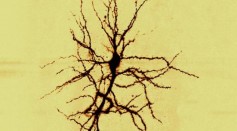brain

New Study of the Brain Reveals Smartphone Use Changes It

Memory Restoration Now Possible? Neurologists Find New Secrets to Synapses Storage

NATURE Says Mammals Developed 3D Neural Compass to Better Navigate Terrain

While Some Researchers Find Brains Who can Navigate, Others Just Can’t Find Theirs

Virus Causes Stupidity In Infected Patients
Most Popular

Plato’s Long-Lost Grave Found Using AI To Decipher Herculaneum Scrolls; Greek Philosopher Had Been Sold Into Slavery: Report

Cancer Risk Surges in Beirut Due to Airborne Carcinogens From Diesel Generators

Kaffa Roastery Partners With AI Consultancy Startup Elev To Create AI-Conic Blend of 4 Coffee Beans
![Earth's Quasi-Moon Kamo‘oalewa Could Originate From Lunar Surface Not Asteroid Belt [Study]](https://1721181113.rsc.cdn77.org/data/thumbs/full/53275/89/56/50/40/earths-quasi-moon-kamo-oalewa-could-originate-from-lunar-surface-not-asteroid-belt-study.png)
Earth’s Quasi-Moon Kamo’oalewa Could Originate From Lunar Surface Not Asteroid Belt [Study]






